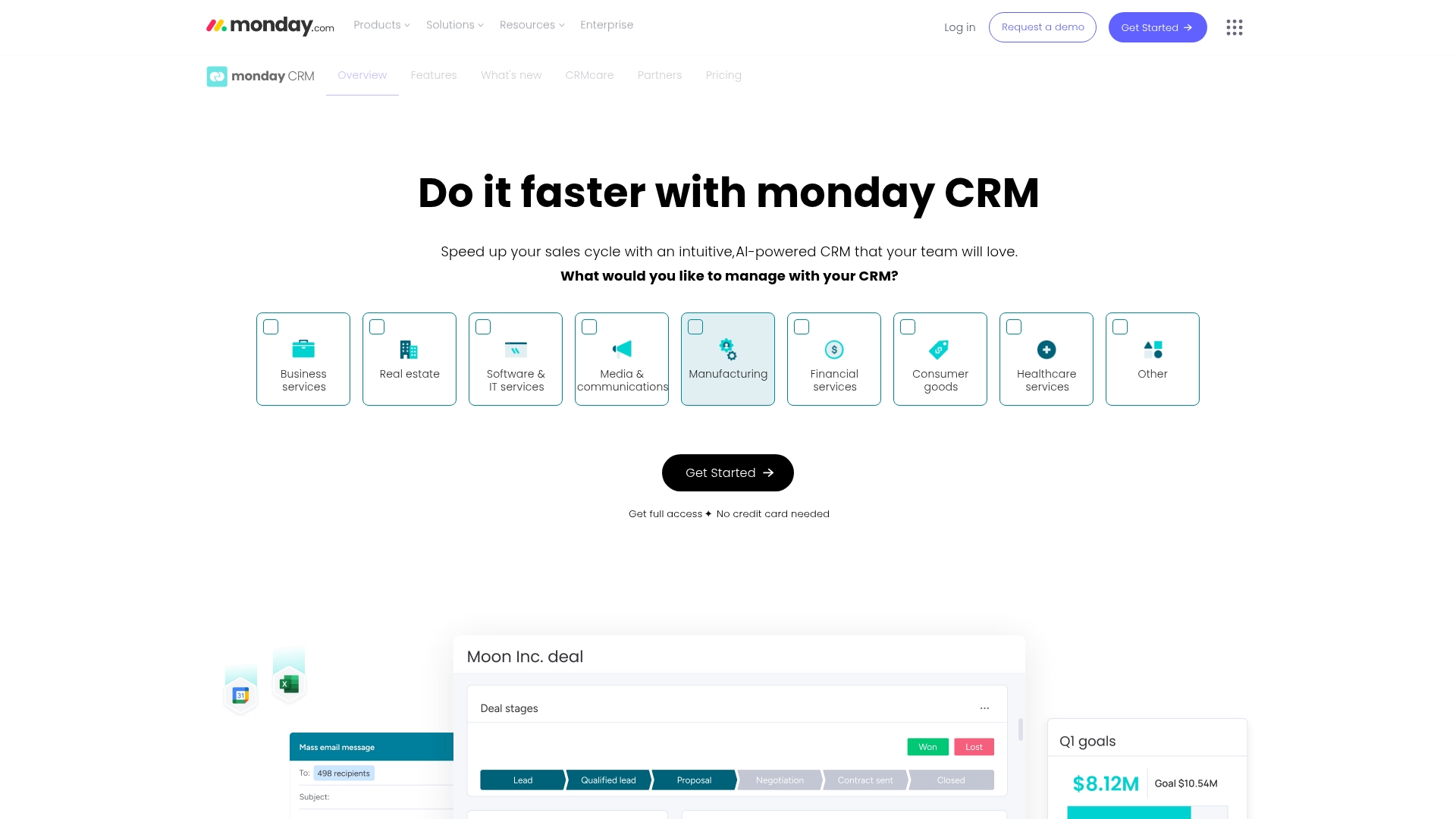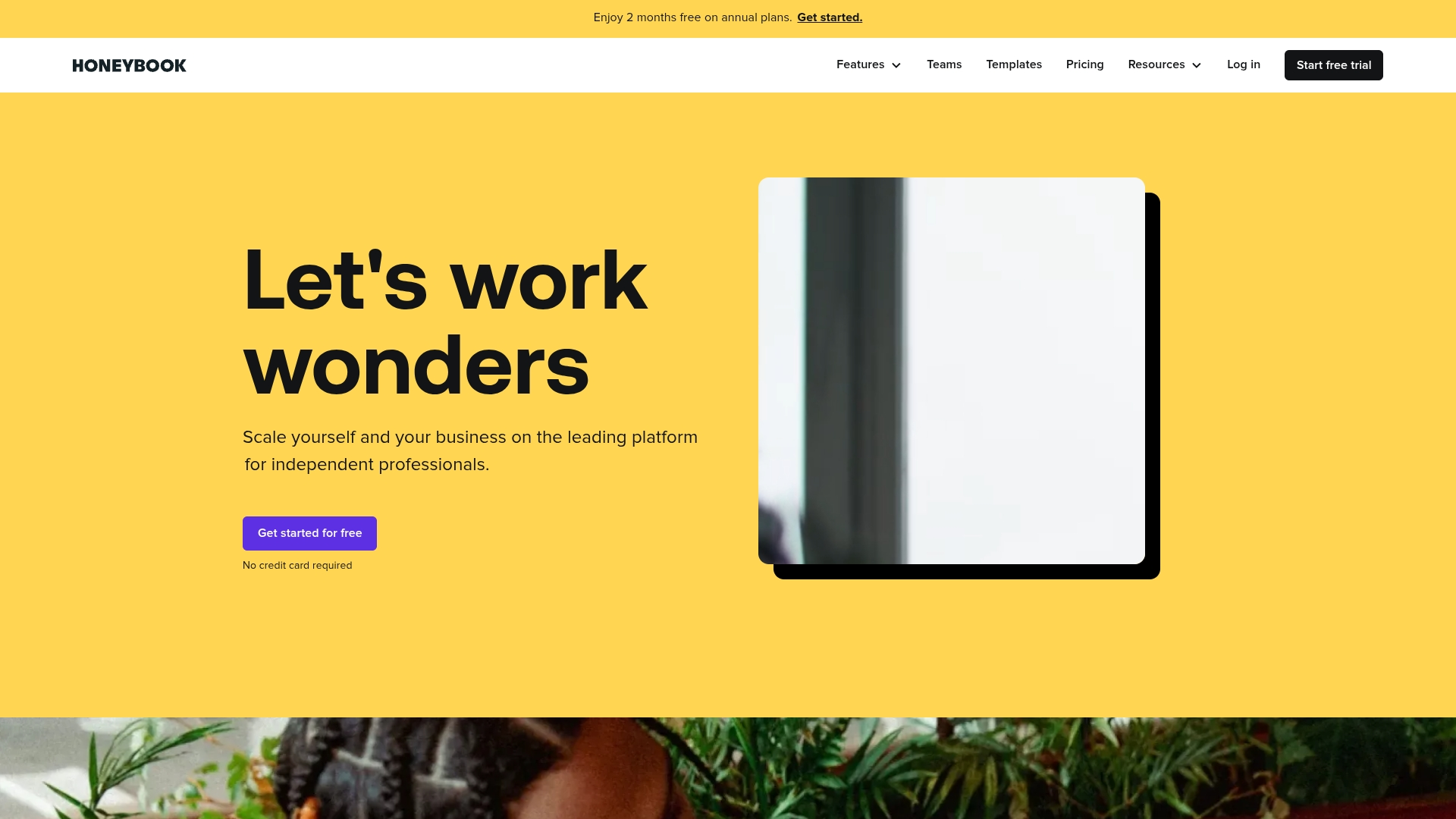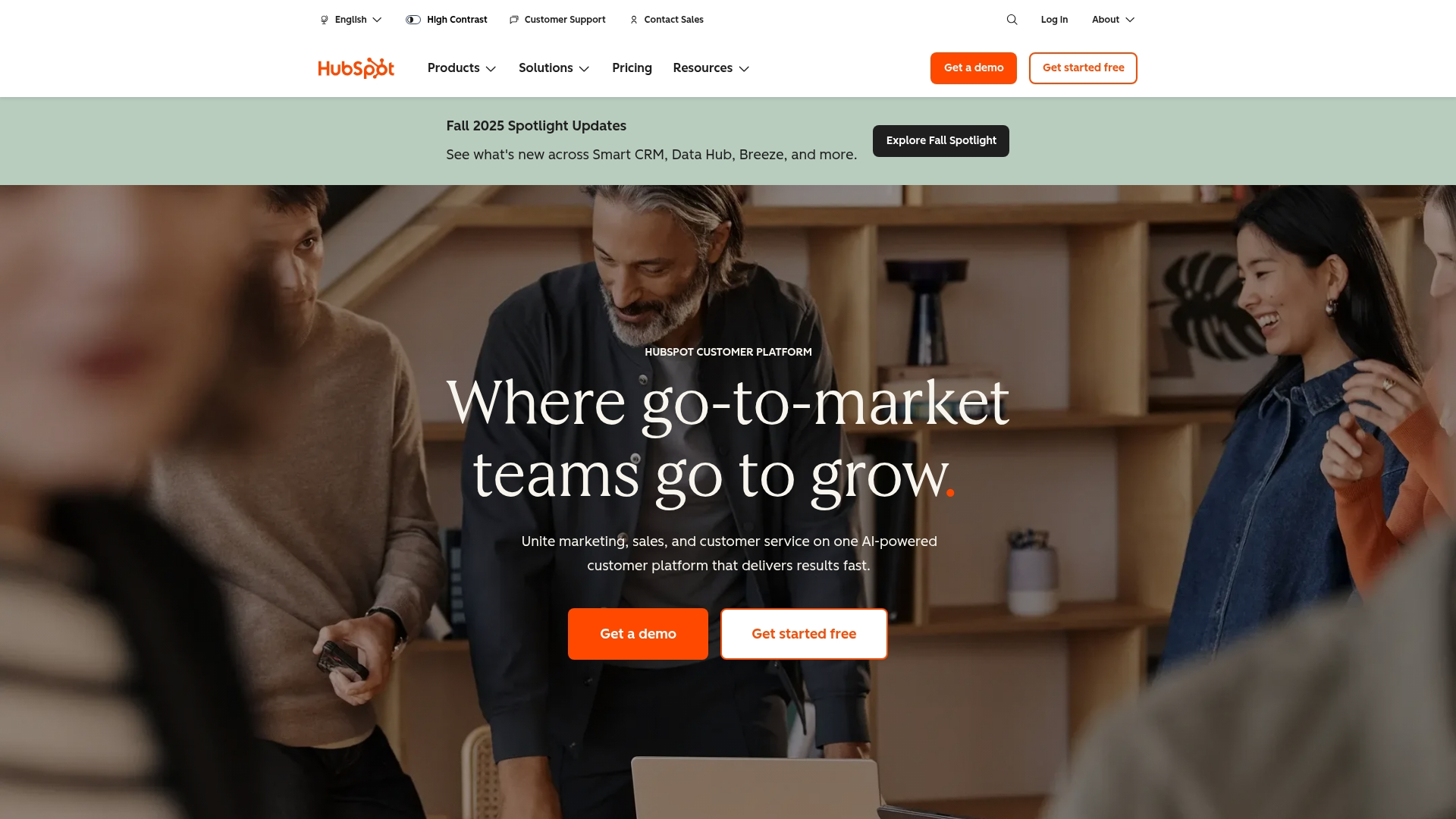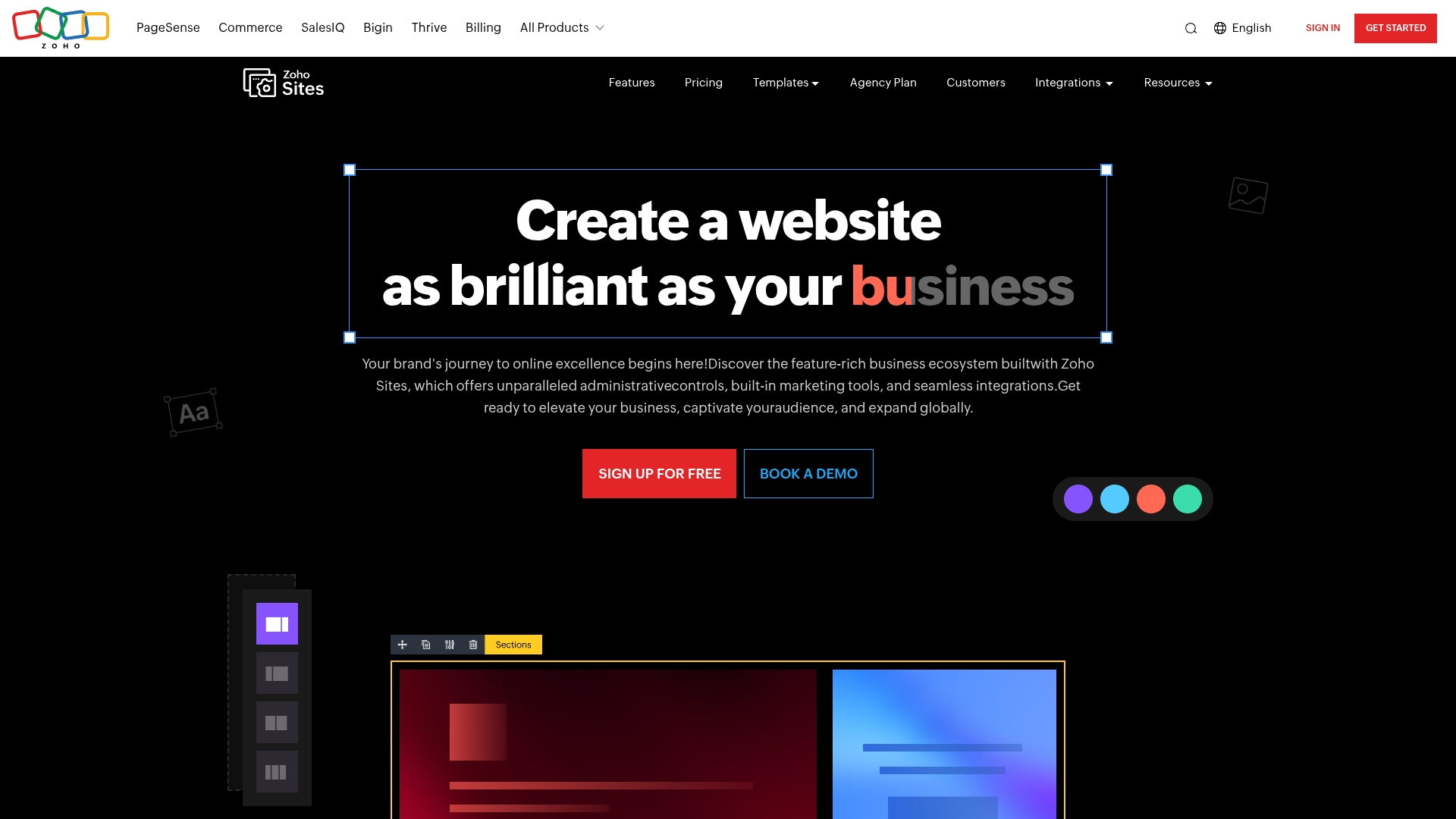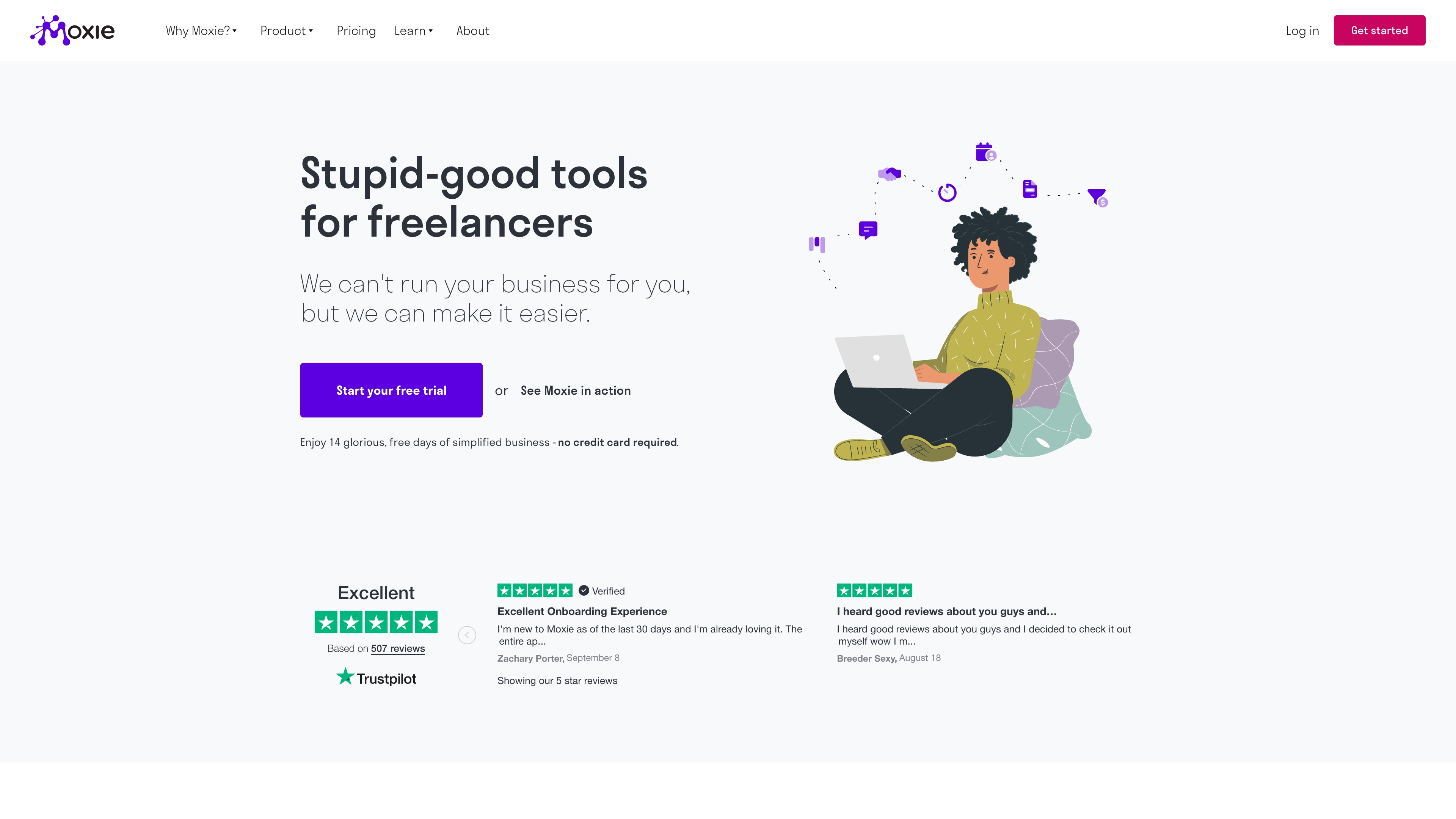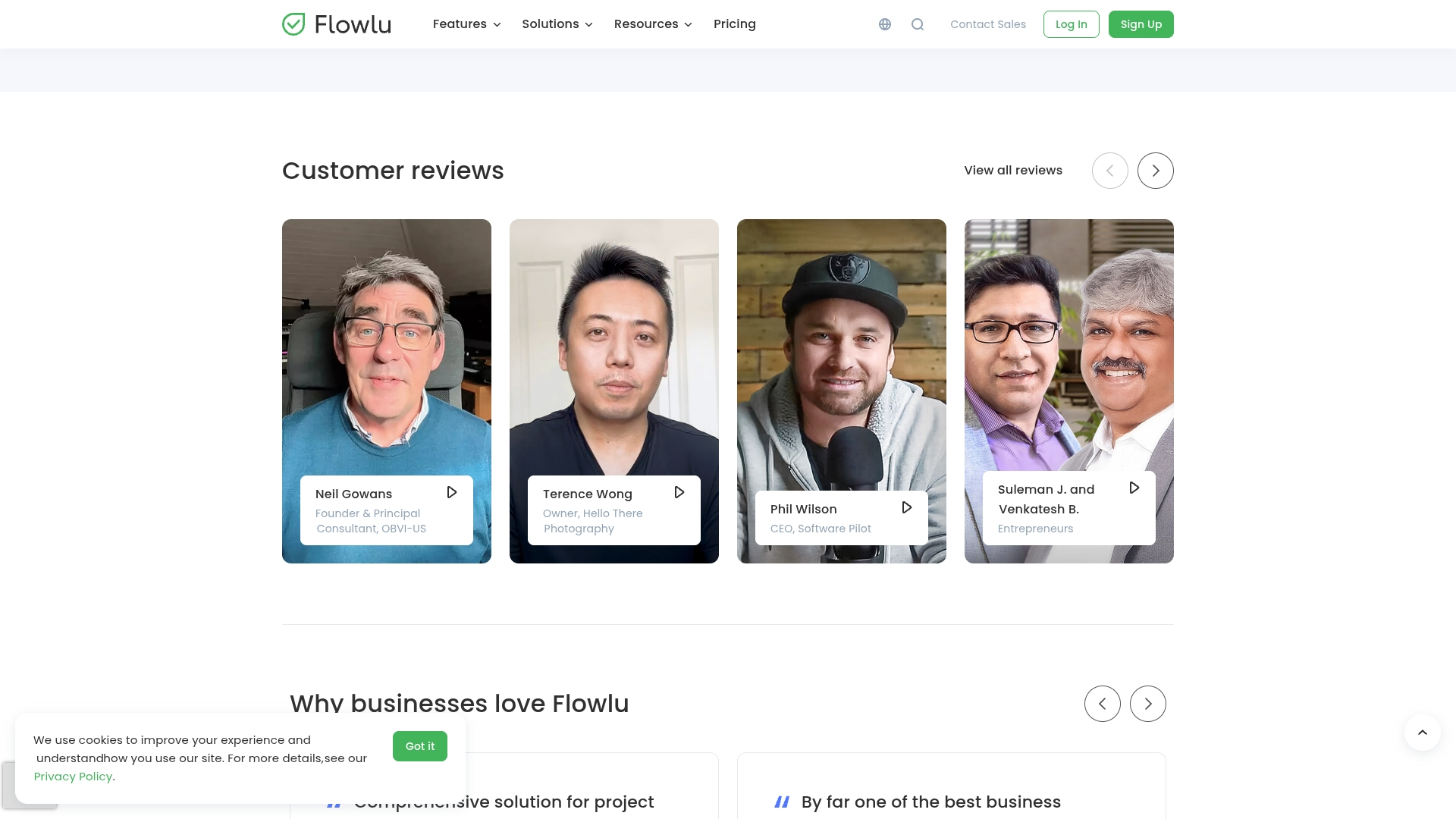Freelancing isn’t just about completing projects — it’s about maintaining strong client relationships, staying organized, and keeping a steady flow of work moving through the sales cycle. When those responsibilities are managed through scattered notes or spreadsheets, important details are easily missed and income can become unpredictable.
A CRM for freelancers provides a clear framework for handling client communication, deadlines, and payments in one place. With the right software, it becomes easier to stay organized, build long-term relationships, and keep projects progressing without the complexity of large-scale enterprise systems.
This guide highlights the key features of freelance CRM software and reviews the top platforms for 2025. Join us as we’ll also explore how the right system improves client retention and supports sustainable growth.
Key takeaways
- Client organization: a CRM for freelancers keeps all contacts, project details, and communication in one place for easier management.
- Pipeline visibility: visual sales pipelines highlight where deals stand in the sales cycle, making income more predictable and reducing missed opportunities.
- Faster payments: integrated invoicing and payment tools help freelancers get paid on time and maintain healthy cash flow.
- Smarter workflows: automation removes repetitive tasks, giving freelancers more time to focus on client work and business growth.
- Scalable flexibility: platforms like monday CRM provide customizable workflows and automation that grow with a freelancer’s business.
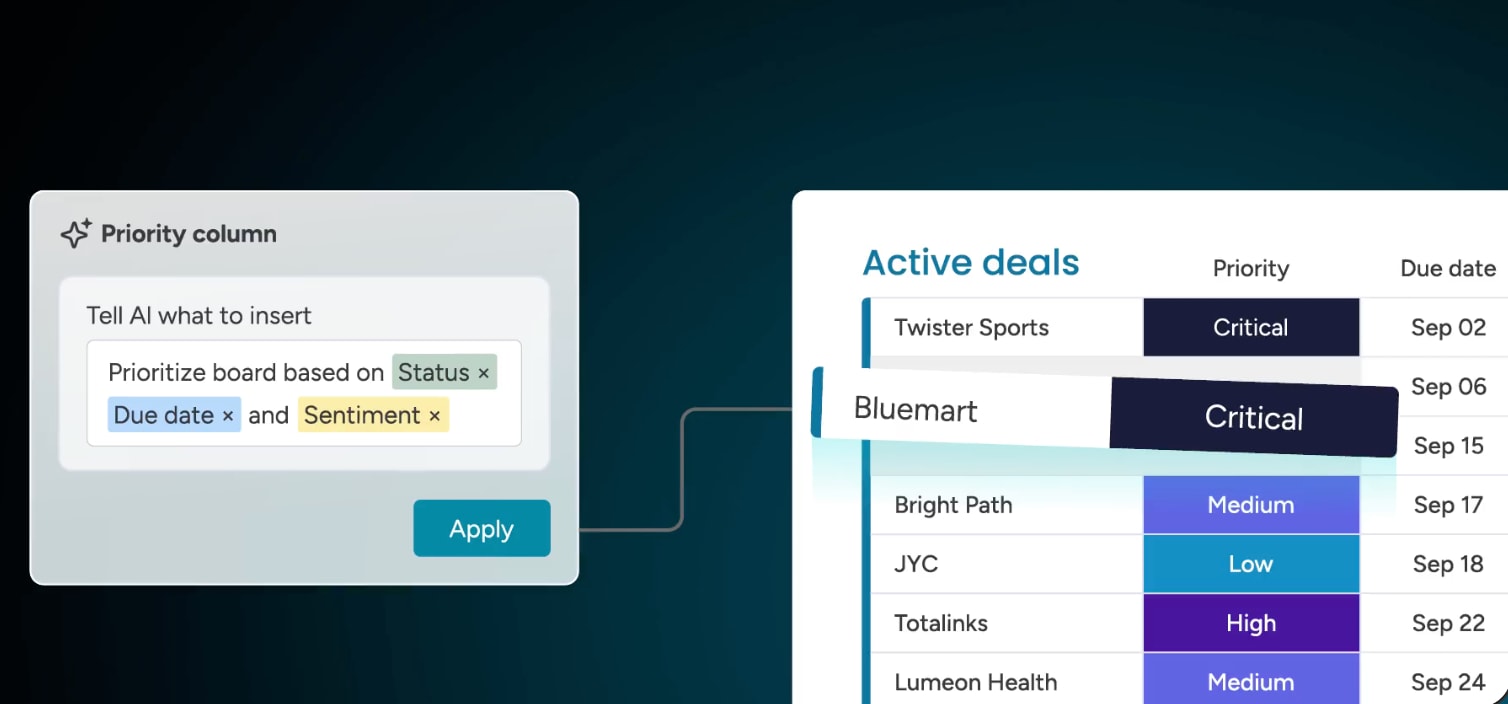
CRM explained: why it matters for freelancers
A Customer Relationship Management (CRM) platform gives freelancers one organized space to manage every client detail. From contact information and project notes to past conversations, everything lives in a single workspace instead of being spread across spreadsheets and email threads.
For independent professionals, this isn’t just about staying organized. A CRM helps track the full sales cycle, provides visibility into upcoming opportunities, and creates a more professional client experience. Clear communication and structured pipelines make it easier to stay on top of work while freeing up time to focus on delivering great results.
Getting started is simpler than it may sound. Modern platforms are designed to be intuitive, with features freelancers can use right away. A flexible option like monday CRM combines ease of use with the ability to scale, so it works just as well for two clients as it does for twenty. That flexibility gives freelancers confidence to grow while knowing their client management process can grow with them.
Key features freelancers should look for in a CRM
Many CRMs are designed for large teams, which can leave freelancers dealing with tools that are too complex or too expensive. The right platform should feel like a partner in your business — flexible enough to adapt to the way you work and simple enough to fit naturally into your day.
A strong Customer Relationship Management (CRM) platform for freelancers should include:
- Simple contact management: more than a list of names, it should give you full context on every client, from past projects to current conversations.
- Pipeline tracking: a clear view of where each project sits in the sales cycle, so you can plan income and spot bottlenecks early.
- Invoicing and payments: built-in tools to create invoices, send reminders, and track payments without juggling extra apps.
- Automation options: features that handle repetitive tasks, like follow-up emails or proposal reminders, so you can spend more time on client work.
- Easy customization: the ability to shape workflows to match your process, without unnecessary complexity or steep learning curves.
These essentials are what transform a simple contact list into a growth platform: helping freelancers stay organized, win more work, and reduce stress along the way.
Smarter contact management for freelancers
Contact management goes beyond keeping track of email addresses. The right CRM should capture everything that matters about a client — from project history to communication notes — giving freelancers a clear, complete view of every relationship.
Smart tagging makes this even more powerful. By grouping contacts into categories such as “hot leads,” “active projects,” or “past clients for follow-up,” it becomes easier to personalize communication and focus on the right opportunities at the right time. This turns everyday interactions into stronger, more strategic client relationships.
A visual pipeline to track every opportunity
Freelancers juggle projects of all sizes, from quick one-off tasks to long-term retainers. A visual pipeline keeps every opportunity in view so nothing slips through the cracks. This kind of visibility makes it easier to stay focused and move work forward with confidence.
A well-structured pipeline allows freelancers to:
- See the full sales cycle: track projects from the first inquiry through proposal and closing, with a clear view of progress at every stage.
- Spot bottlenecks quickly: identify where deals are stalling and take action before opportunities are lost.
- Prioritize effectively: know exactly which opportunities need attention to keep momentum and build predictable revenue.
With a visual pipeline in place, freelancers gain both clarity and control — essential for steady growth.
Seamless invoicing that gets you paid faster
Stop the frustrating shuffle between your CRM, invoicing software, and payment apps. Integrating billing into your CRM means you can generate invoices and collect payments all in one place. You’ll spend less time on admin and more time on the work that actually pays the bills.
Automated payment reminders take the awkwardness out of following up on late invoices, helping you maintain healthy cash flow. By connecting with processors like Stripe or PayPal, you create a smooth, professional payment experience for your clients, making it easier for them to pay you on time.
Smart automation to handle the busywork
Automation functions as a brilliant assistant, systematically handling the repetitive tasks that consume your valuable time. Imagine automated email sequences nurturing new leads or smart alerts notifying you the moment a prospect revisits your proposal. This is the essence of working smarter, not harder.
With monday CRM, you can easily build these automations without writing a single line of code. Our platform helps you prioritize your best opportunities and even forecast future income, giving you the power of an enterprise tool with none of the complexity.
Visual dashboards for at-a-glance insights
Custom dashboards give freelancers a clear picture of business performance in one place. Instead of combing through spreadsheets, key metrics are easy to track and understand at a glance.
Dashboards make it simple to monitor:
- Conversion rates: see how many opportunities turn into paying clients.
- Average project value: understand the financial impact of each deal.
- Sales cycle length: measure how long it takes to close projects from inquiry to payment.
These visual reports turn raw data into actionable insights. By seeing which projects are most profitable and which lead sources deliver the best results, freelancers can make confident, data-driven decisions that support sustainable growth.
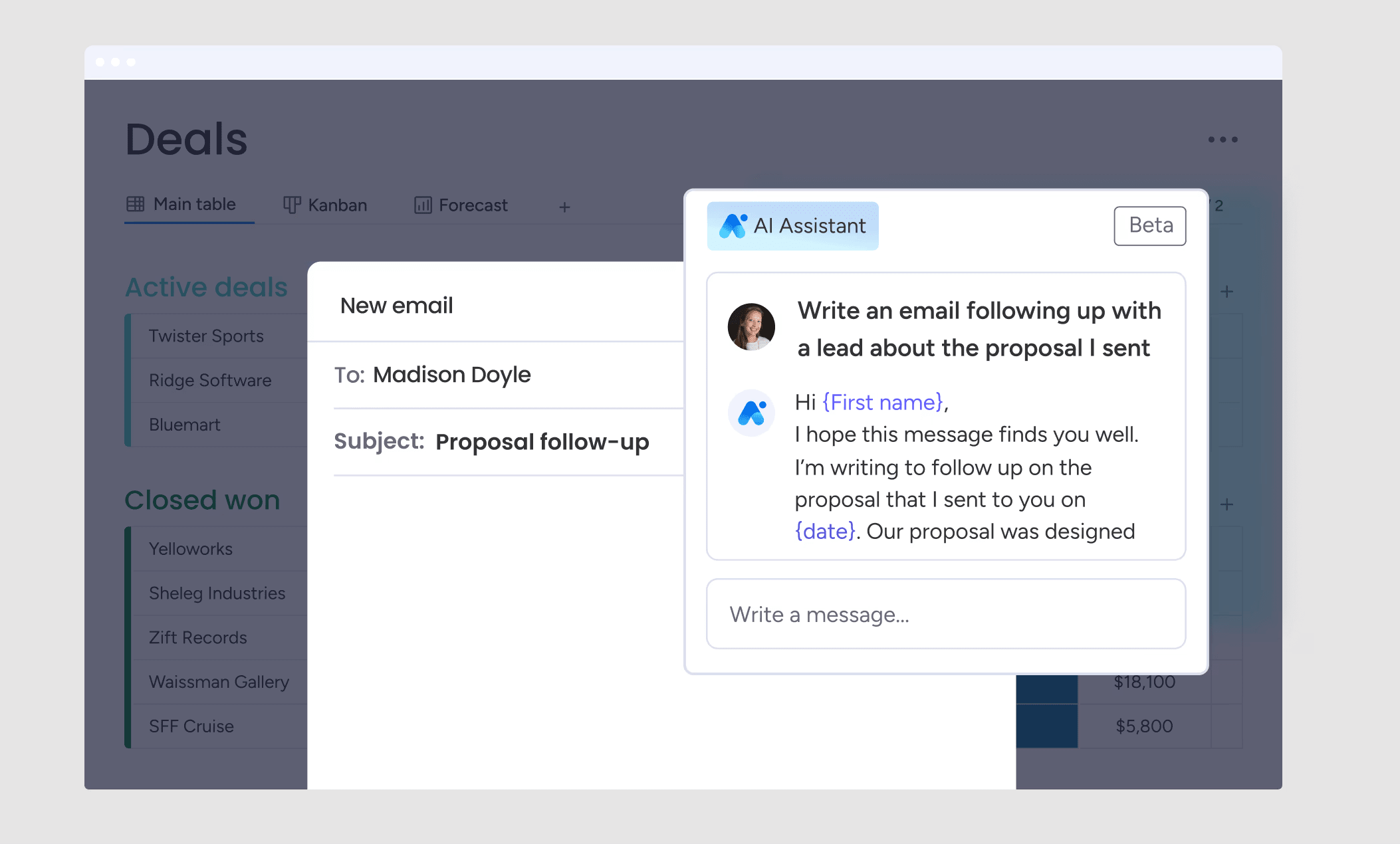
Comparing the top CRM options for freelancers
Picking the right CRM is about matching the tool to your game plan, whether you’re focused on simple contact management or juggling complex projects that need serious automation to keep everything moving. The real goal is to find a platform that makes your entire workflow feel effortless, giving you more time to focus on what you do best.
To simplify your decision, we’ve evaluated the top contenders and identified their unique strengths. This breakdown illuminates what each platform offers, spanning from bare-bones simplicity to powerful, intuitive systems designed for seamless scaling.
| Platform | Best for | Starting price | Key strengths | Limitations |
|---|---|---|---|---|
| monday CRM | Freelancers who want growth without complexity | $12/user/month | Intuitive visual interface, powerful automations, integrates with project management, customizable pipelines | Best suited for freelancers planning to scale their operations |
| HubSpot | Content creators and inbound marketers | Free (limited features) | Strong marketing tools, extensive free tier, great educational resources | Can get expensive quickly, complex for simple needs |
| Pipedrive | Sales-focused freelancers with clear funnels | $14.90/user/month | Affordable pricing, part of larger Zoho suite, good customization | Steeper learning curve, can feel outdated |
| Freshsales | Service-based freelancers | $15/user/month | Built-in phone and email, good customer support features | Limited automation in lower tiers |
| Airtable | Creative freelancers who think in spreadsheets | $10/user/month | Flexible database structure, great for project tracking | Not built specifically for sales, can become complex |
1. monday CRM
monday CRM transforms how freelancers manage client relationships by combining powerful customization with an intuitive design. The platform specializes in no-code workflow automation and visual project tracking, making it ideal for solo professionals who need to scale without complexity. Built on the broader monday Work OS, it seamlessly grows from individual use to small team collaboration.
Example: monday CRM empowers freelancers to automate repetitive tasks, centralize client communication, and visualize their entire sales pipeline in one customizable workspace.
Key features:
- Customizable sales pipelines with drag-and-drop simplicity and multiple view options (Kanban, timeline, calendar).
- No-code automation recipes for follow-ups, status updates, and client communications.
- AI assistant for composing emails and tracking engagement (advanced AI features are primarily on higher-tier plans).
Pricing:
- Free: $0 forever (up to 2 seats, 3 boards). This plan is part of the monday.com Work OS and may have limited CRM-specific features.
- Basic: $9/month per seat (billed annually, unlimited items, 5GB storage).
- Standard: $12/month per seat (billed annually, automations, integrations, guest access).
- Pro: $19/month per seat (billed annually, advanced features, time tracking, 25K automation actions).
- Enterprise: Custom pricing (enterprise-scale features, advanced security, 24/7 support).
Why it stands out:
- Seamlessly integrates CRM functionality with project management in one unified workspace.
- Offers extensive customization without requiring technical expertise through its visual, no-code interface.
- Scales effortlessly from solo freelancer operations to small team collaboration without platform migration.
Maximizing your experience:
- The platform is rich with features, so new users should plan to dedicate time to exploring its full capabilities.
- Some of the most powerful features, like advanced automations and analytics, are reserved for the higher-priced plans.
2. HoneyBook
Creative entrepreneurs will find a powerful ally in HoneyBook, an all-in-one clientflow management platform that streamlines everything from proposals to payments. The platform specializes in creating seamless, professional client experiences, making it particularly powerful for photographers, designers, and event planners who need to impress clients while staying organized.
Use case: HoneyBook centralizes client management, proposals, contracts, invoicing, and payments into one streamlined workflow that enhances both freelancer efficiency and client experience.
Key features:
- Smart Files that combine proposals, contracts, and payment processing into interactive documents clients can review, sign, and pay in one flow.
- Automated workflows that handle follow-ups, payment reminders, and client communications based on project triggers.
- Branded client portals where customers can access all project documents, communications, and make payments seamlessly.
Pricing:
- Starter: $29/month (billed annually).
- Essentials: $49/month (billed annually).
- Premium: $109/month (billed annually).
- Payment processing fees: 2.9% + 25¢ per credit/debit card transaction, 1.5% per ACH bank transfer.
- Free trial: 7-day free trial available.
Considerations:
- Limited reporting and analytics capabilities compared to more advanced CRM platforms.
- Higher pricing tiers required to access automation features and key integrations that many freelancers consider essential.
3. HubSpot
For freelancers building their business through content and lead generation, HubSpot’s comprehensive and famously free CRM platform provides an unmatched starting point. The platform specializes in inbound marketing methodology and seamless integration capabilities, making it ideal for freelancers who need to attract clients through content marketing.
Use case: HubSpot’s free CRM unifies customer data with AI-powered insights and marketing automation tools, designed specifically for small businesses and freelancers who need to scale their client relationships without upfront costs.
Key features:
- Contact and deal management with unlimited contacts and up to 1,000 storage capacity on the free plan.
- Built-in marketing tools including email templates, meeting scheduler, live chat, and landing page builder.
- Extensive integration ecosystem with over 1,700+ business apps including Gmail, Shopify, and Zapier.
Pricing:
- Free: $0/month (up to 2 users, 1,000 contacts).
- Starter: Pricing varies by hub (Marketing, Sales, Service).
- Professional: Advanced features with higher contact limits.
- Enterprise: Full-scale business solutions with custom pricing.
Considerations:
- Pricing can escalate quickly as your contact list grows and you need advanced features.
- Free plan users don’t have access to live customer support, which can be limiting when technical issues arise.
4. Zoho
The strength of Zoho’s CRM lies in its vast, interconnected ecosystem, offering a solution that grows with your freelance business from basic contact management to advanced automation. The platform’s modular approach lets freelancers start with essential CRM features and add accounting, email marketing, and project management tools as their business expands. With its AI-powered assistant Zia and budget-friendly pricing, Zoho makes enterprise-level CRM capabilities accessible to solo professionals.
Use case: Zoho CRM provides freelancers with an integrated business ecosystem that combines customer relationship management with accounting, project management, and marketing tools in one affordable platform.
Key features:
- AI-powered assistant (Zia) that provides predictive insights, analyzes email sentiment, and suggests optimal contact times.
- Seamless integration with 50+ Zoho business applications including invoicing, project management, and email marketing.
- Advanced workflow automation through Blueprint feature that enforces standardized processes and compliance.
Pricing (for Zoho Billing):
- Standard: $29/organization/month.
- Premium: $69/organization/month.
- Note: Additional tiers and a free plan are also available. Pricing reflects Zoho’s billing module, which is part of its larger ecosystem.
Considerations:
- Interface can feel cluttered and overwhelming for new users navigating the extensive feature set.
- Performance may slow when handling large datasets, which could impact productivity for high-volume freelancers.
5. Moxie
Built from the ground up for the modern freelancer, Moxie is an all-in-one client management platform that consolidates project management, invoicing, and client communication. The platform is ideal for independent professionals who need to streamline their entire business operation. With industry-specific templates and educational resources, Moxie helps freelancers present a professional image while managing everything from lead capture to final payment.
Use case: Moxie provides freelancers with a comprehensive business management solution that replaces multiple tools by combining CRM, project tracking, invoicing, and client collaboration in one intuitive platform.
Key features:
- Time tracking with project-based billing and profitability insights for accurate client invoicing.
- Customizable client portal with white-label branding for professional client collaboration.
- Automated workflows for client onboarding, proposal sending, and invoice generation.
Pricing:
- Starter: $12/month (monthly) or $10/month (billed annually as $120/year)
- Pro: $25/month (monthly) or $20/month (billed annually as $240/year)
- Teams: $40/month (monthly) or $32/month (billed annually as $385/year)
- Free trial: 14-day free trial available on all plans
- Scholarships available for qualifying users
Considerations:
- Limited customization options compared to more advanced platforms like Dubsado for complex workflows.
- Some users report occasional technical glitches and a steeper learning curve than initially expected.
6. Flowlu
Flowlu’s all-in-one business management platform excels by seamlessly integrating CRM, project management, and invoicing into a single, cohesive workspace. The platform specializes in creating a smooth transition between sales and project delivery, making it ideal for freelancers who need to manage the entire client lifecycle from lead to payment. With a generous free tier and collaborative features, Flowlu supports solo professionals and small teams working with subcontractors.
Use case: Flowlu provides freelancers with a comprehensive business management solution that eliminates the need for multiple software subscriptions by combining CRM, project management, invoicing, and team collaboration in one affordable platform.
Key features:
- Kanban-style sales pipeline with drag-and-drop deal management and automated lead capture from website forms.
- Integrated project management that converts won deals into projects automatically, maintaining client context throughout the workflow.
- Built-in invoicing and payment processing with recurring billing capabilities and client portal for secure document sharing.
Pricing:
- Free: $0 for 2 users with 1GB storage and unlimited projects, tasks, and opportunities.
- Solo: $15/month (yearly) or $19/month (monthly) for 1 user with 10GB storage — special offer for freelancers.
- Team: $39/month (yearly) or $49/month (monthly) for 8 users with 10GB storage.
- Business: $79/month (yearly) or $99/month (monthly) for 16 users with 50GB storage.
- Discount: 20% discount for yearly billing.
- Free trial: 14-day free trial available.
Considerations:
- Some users report occasional minor bugs and settings that may disappear, requiring attention to system stability.
- Individual modules may not be as feature-rich as specialized standalone software, particularly for advanced email marketing needs.
How to get started with a new CRM
Adopting a CRM doesn’t have to be overwhelming. The first step is simply bringing all contacts and leads into one place. Platforms like monday CRM streamline this with import tools that let freelancers and teams quickly set up a foundation that reflects their own sales process, rather than forcing them into rigid structures.
Once the basics are in place, customization helps turn the CRM into a true growth engine. Pipelines can be tailored with drag-and-drop simplicity, while automations handle tasks like follow-up reminders or assigning items to keep deals moving. This frees up valuable time for building relationships and closing work.
The final step is integration. By connecting a CRM with existing tools such as Gmail, Slack, or Calendly, freelancers can create a single hub for all sales activities. This eliminates duplicate work and constant switching between apps, while giving a clear view of communication and performance in one place.

Choosing momentum over perfection
Searching for the “perfect” CRM can easily delay progress. The most effective system is often the one that a team adopts and uses consistently. Forward motion creates results faster than long periods of over-analysis.
A well-designed CRM provides a unified view of the pipeline, removes guesswork, and supports aligning the whole team on next steps. Automating repetitive work and centralizing communication makes it easier to focus on what really matters: building stronger client relationships and closing more deals.
For freelancers and small teams ready to take that step, monday CRM offers the flexibility to adapt to unique workflows and grow alongside the business. Try monday CRM today and see how the right platform can transform the way work gets done.
The content in this article is provided for informational purposes only and, to the best of monday.com’s knowledge, the information provided in this article is accurate and up-to-date at the time of publication. That said, monday.com encourages readers to verify all information directly.
Frequently asked questions
How do freelancers use AI in CRM platforms without coding experience?
AI in CRM platforms helps freelancers handle everyday tasks like drafting emails, generating follow-ups, or spotting opportunities — all without technical skills. In monday CRM, these tools are built in with simple prompts and click-based settings, making it easy to work smarter and save time without touching code.
Which CRM platform scales best from solo freelancer to small team?
monday CRM is built to scale seamlessly from a solo freelancer to a small team with flexible, user-based pricing. As you add teammates, collaboration features activate automatically so your workspace grows with you.
Can CRM software help freelancers forecast future income?
Yes, a CRM analyzes your sales pipeline and deal history to provide accurate revenue forecasts. This allows you to confidently plan your finances based on expected income.
Are there pre-built CRM templates designed specifically for freelancers?
Yes, monday CRM provides a gallery of pre-built templates designed for freelancers, with workflows for proposal tracking and project management. These templates are fully customizable to fit your specific process.
Do CRM platforms integrate with existing payment processing systems?
Yes, platforms like monday CRM integrate with popular payment processors like Stripe and PayPal to automate invoice tracking. This gives you real-time visibility into payment statuses without manual data entry.
How do freelancers transition from free CRM plans to paid versions?
Upgrading from a free to a paid plan is an instant process that keeps all your existing data, contacts, and settings intact. You simply unlock advanced features without any disruption or data migration.


